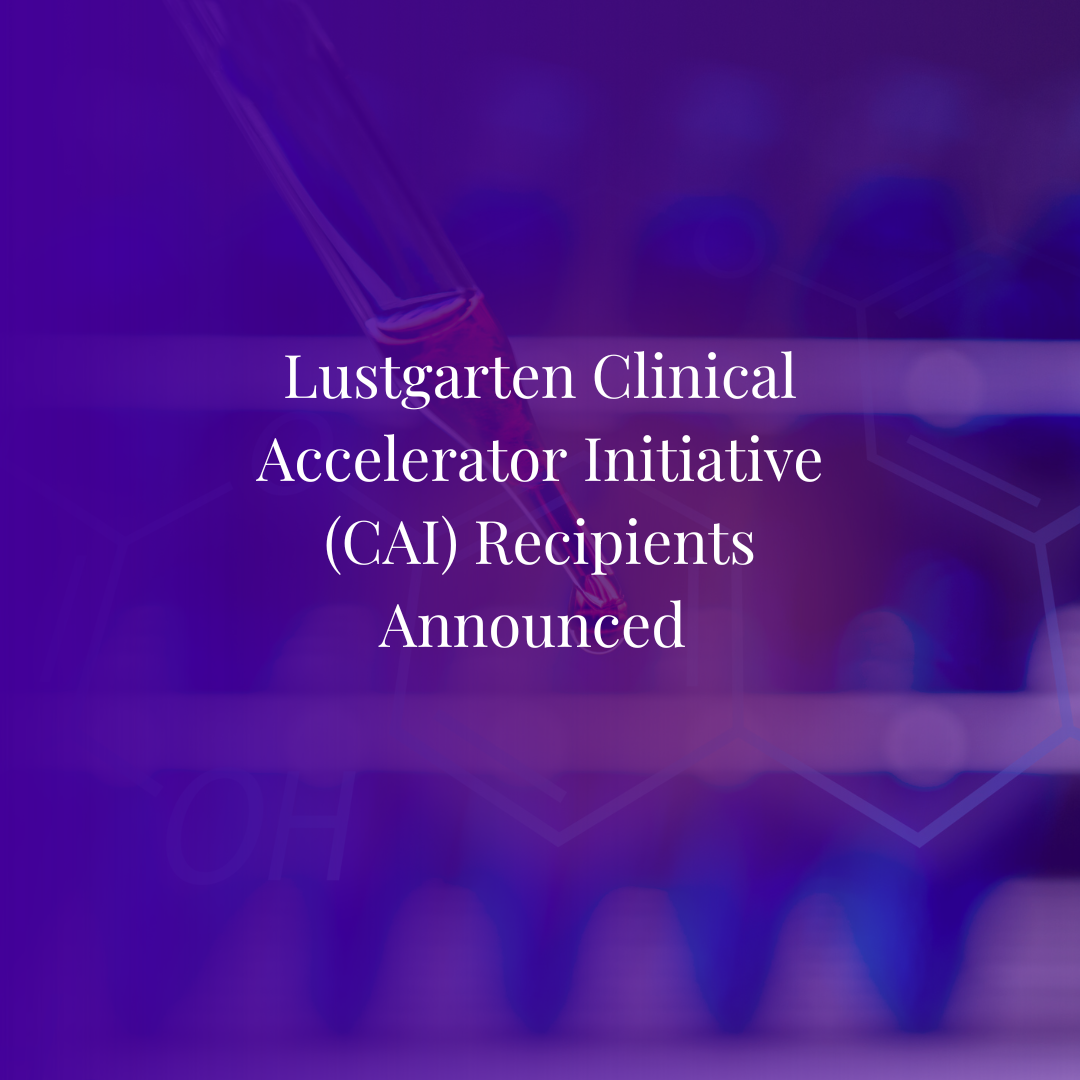Lustgarten Clinical Accelerator Initiative (CAI) Recipients Announced
Topic: Hide on Homepage, News, Pancreatic Cancer News, Press Releases, The Researchers

CAI grants awarded to Eric Christenson, MD, & Andrew Lowy, MD
WOODBURY, N.Y., July 30, 2024 — The Lustgarten Foundation has announced two new Dr. Robert F. Vizza Lustgarten Clinical Accelerator Initiative (CAI) grants awarded to Eric Christenson, MD, Assistant Professor, Johns Hopkins University School of Medicine, for his study “A pilot study comparing neoadjuvant and adjuvant GVAX vs a mutated KRAS peptide vaccine given with anti-PD-1 and anti-CD137 agonist for the treatment of surgically resectable pancreatic adenocarcinoma,” and Andrew Lowy, MD, Director of Surgical Oncology at UC San Diego, and Associate Clinical Director, Surgery, Moores Cancer Center, UC San Diego, in collaboration with Shweta Joshi, PhD Moores Cancer Center, UC San Diego, for their study “Syk-Targeted Therapy with Fostamatinib: A Promising Avenue to Enhance Chemotherapy Response in Pancreatic Cancer.” Lustgarten’s CAI serves to speed the translation of basic research into the clinic by supporting novel, science-driven clinical trials.
“Pancreatic cancer rates are rising, and novel approaches are urgently needed,” said Eric Christenson, MD. “Thanks to the Lustgarten Foundation’s funding, this study will bring us closer to determining the best vaccine combination for further development down the FDA-approval pathway.”

Christenson’s team has developed an adaptive platform trial design, investigating immunotherapy combinations in resectable pancreatic ductal adenocarcinoma (PDAC). This approach will allow the researchers to rapidly evaluate the clinical and biological effects of several combinations as separate “arms,” perpetually modifying interventions based on predefined parameters. This will build on a small initial study of ten patients who were treated with their vaccine, anti-PD1 and CD137 activating antibodies, which demonstrated improved survival; three out of ten patients had evidence of tumor killing after the initial two weeks of treatment.
Using a Lustgarten-developed process, based on real-time peer-review feedback, the Clinical Accelerator Initiative produces highly collaborative clinical trials with innovative, science-driven, efficient designs. Trials funded through the CAI place a deep focus on translational analysis to rapidly further our understanding of disease biology and treatment mechanisms. These “smarter” clinical trials generate large volumes of data scientists use to help inform and improve current and future clinical trials and expedite new treatments.
“We are grateful to the Lustgarten Foundation for their support,” said Dr. Lowy. “Successful results from our work could allow for a more rapid path to improving the standard of care for pancreatic cancer patients.”

Lowy and Joshi’s collaborative research focuses on the “immunosuppressive tumor microenvironment,” cells and proteins present around pancreatic cancer cells that prevent the immune system from effectively recognizing and killing them – a widely recognized barrier to the success of immunotherapy in pancreatic cancer. The predominant type of immune cell present in pancreatic cancer, the macrophage, can be changed from a tumor-promoting cell into a tumor-eliminating cell by blocking the function of a protein called Syk. By blocking Syk using an FDA-approved drug, Fostamatinib, Lowy and team will treat patients prior to surgery to determine if their approach improves outcomes and to study its effects on the tumor microenvironment.
“The Lustgarten Foundation’s CAI is a powerhouse for progress, advancing promising research from the lab to the clinic faster than ever before, and providing a more hopeful future for patients and their families,” said Linda Tantawi, Lustgarten Foundation CEO. “Through programs like CAI, we are empowering the best researchers, bringing us closer to a future where pancreatic cancer is treatable and beatable.”
Learn more about the Lustgarten Foundation’s Dr. Robert F. Vizza Lustgarten Clinical Accelerator Initiative (CAI) HERE.

